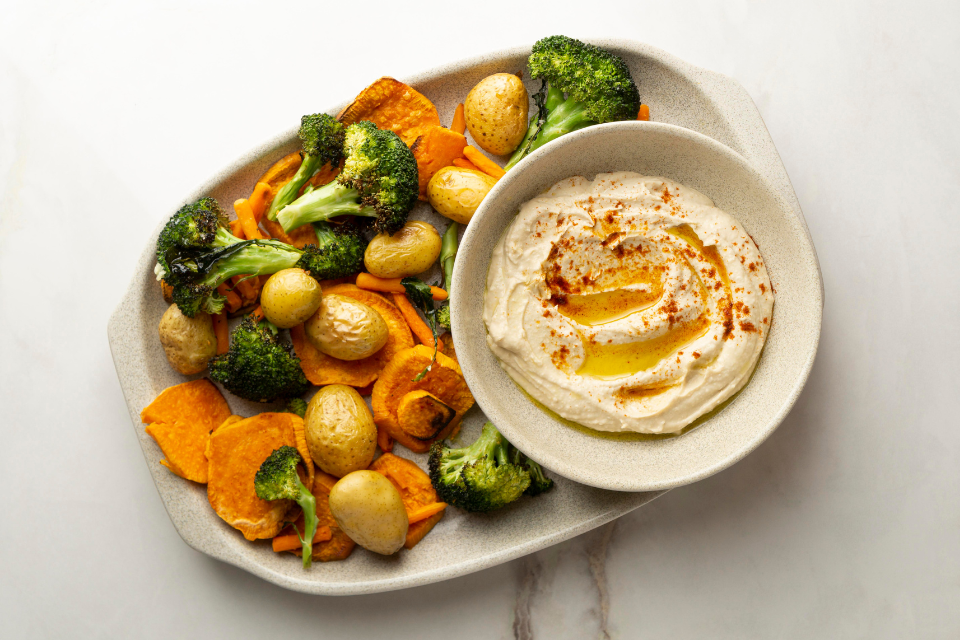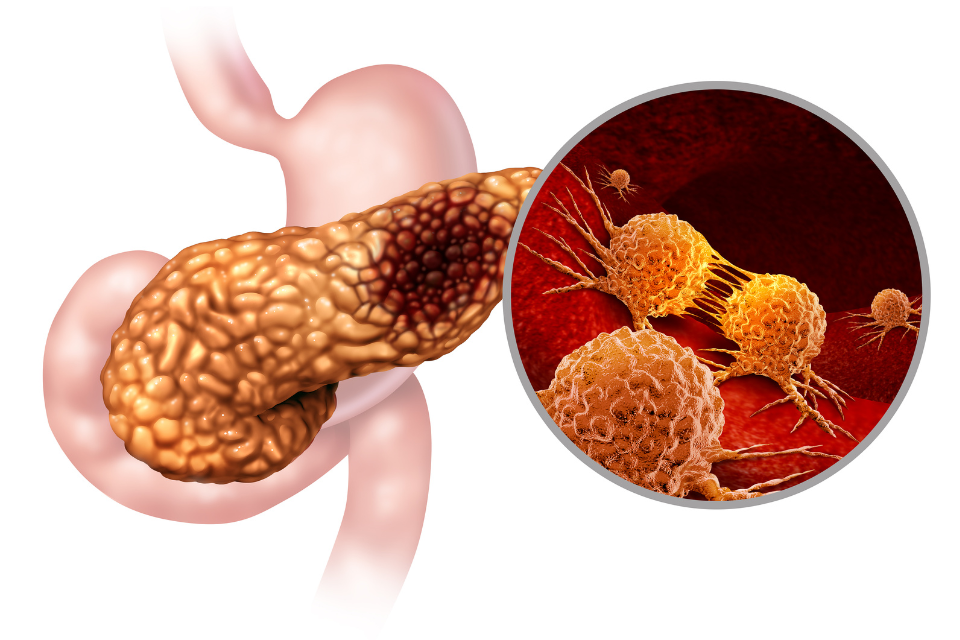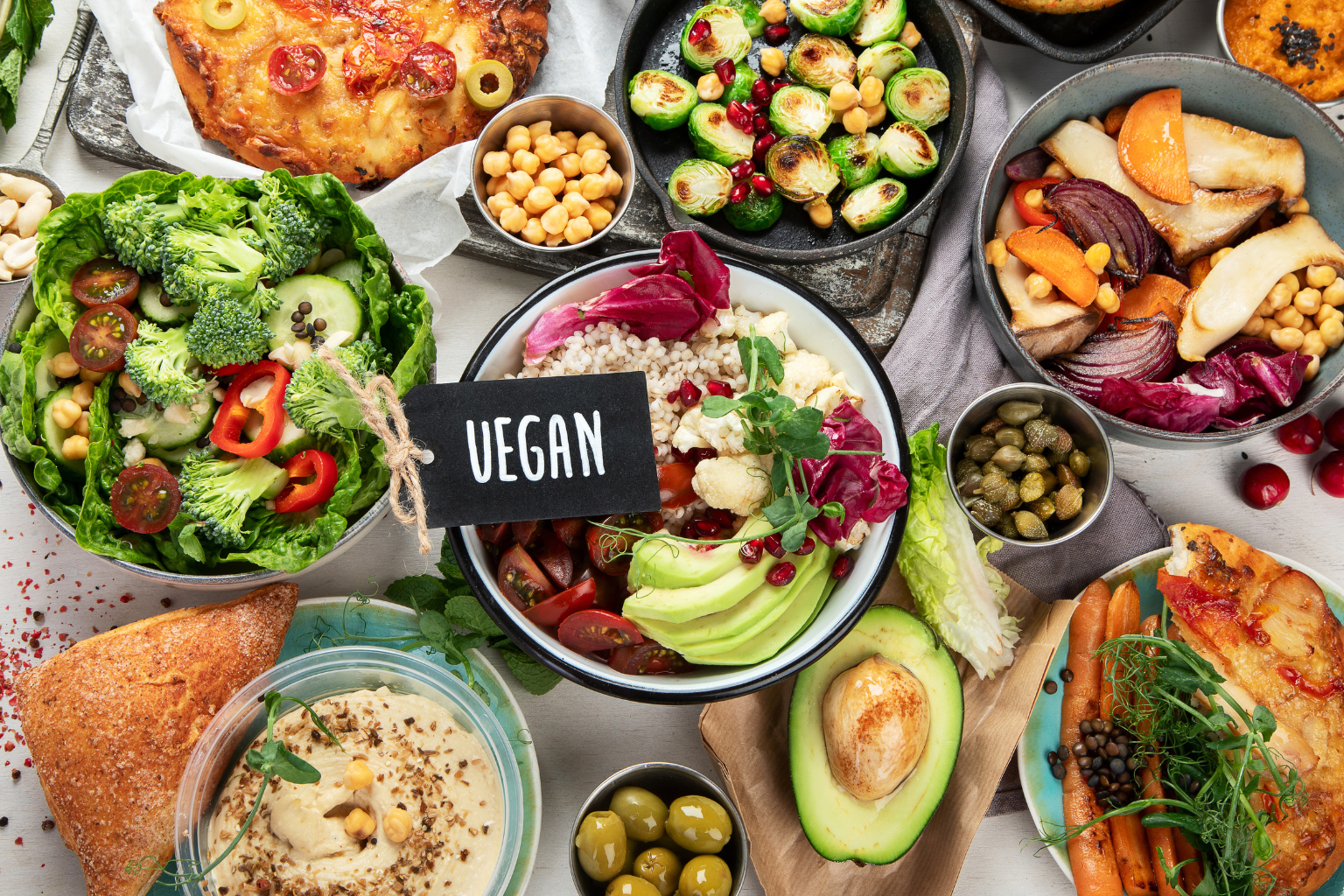Smart Meal Prep Ideas for Healthcare Professionals

You know, there's a unique kind of exhaustion that settles in after a long shift. Whether you're a nurse hustling through a busy ward, a doctor on call for what feels like forever, or any other dedicated member of the medical staff, your job demands so much. And honestly, when you finally drag yourself home, or even just find a moment for a break, the last thing you often want to do is think about cooking a healthy meal. It’s easier, perhaps, to grab something quick, something convenient, even if it’s not exactly what your body truly needs to recover and stay strong.
It's a tough reality, isn't it? The very people caring for our health often struggle to maintain their own. This isn't just about personal discipline; it's about the systemic demands of the profession. Long hours, unpredictable schedules, high-stress environments, and limited access to nutritious options on the fly all contribute to a cycle where good eating habits can feel like an impossible luxury. I’ve certainly seen it – the energy dip, the reliance on cafeteria food or vending machine snacks, the almost inevitable burnout that creeps in when you're not properly fueled.
But what if there was a way to break that cycle? What if you could consistently put good, energizing food into your body without adding more stress to your already packed life? This is where smart meal preparation comes into its own. It's not some rigid, culinary chore; it's a strategic act of self-care, a way to reclaim a little control over your well-being. Think of it as prescribing yourself a healthier, less frantic future. We're going to dive deep into exactly how you can make meal prep ideas for healthcare professionals not just a concept, but a living, breathing part of your routine.
Why Meal Prep Isn't Just a Trend, It's a Necessity
Let's be real: working in healthcare isn't a 9-to-5 desk job. It’s a calling, yes, but also a relentless marathon. Shifts stretch, emergencies pop up, and sometimes a quick bathroom break feels like a luxury, let alone a proper meal. You're constantly on your feet, mentally engaged, and often dealing with high-stakes situations. That kind of sustained effort burns through a lot of energy, both physical and mental.
So, why does this make meal prep so vital? Well, for starters, when hunger strikes during a 12-hour shift, what are your options? The hospital cafeteria, which, let's be honest, often leans heavily on comfort food rather than optimal nutrition? The vending machine, beckoning with sugary snacks and questionable ingredients? Or maybe, just maybe, the almost-forgotten protein bar you stashed in your locker? These quick fixes provide momentary satisfaction, but they rarely offer sustained energy, focus, or the nutrients needed to keep your immune system robust.
And then there’s the post-shift dilemma. You’re drained. The thought of chopping vegetables or waiting for something to bake can feel utterly overwhelming. That’s when the takeout menus look most appealing, isn't it? Or maybe a bowl of cereal for dinner because, hey, it’s food. This isn’t a judgment, by the way; it’s a perfectly human response to exhaustion. But consistent reliance on these less-than-ideal options can lead to energy crashes, weight fluctuations, compromised immunity, and, perhaps most importantly, a subtle but significant erosion of your overall well-being.
This is why focusing on meal prep ideas for healthcare professionals isn't just about saving time; it's about protecting your health, your energy, and your ability to perform at your best, day in and day out. It's about ensuring that you, the caregiver, are also cared for.
Reclaiming Your Health: The Unsung Benefits of Smart Meal Prep
When you start to consistently incorporate smart meal prep into your life, you'll notice a ripple effect of benefits that go far beyond just having food ready. It’s actually quite empowering, I’ve found.
Sustained Energy & Focus
Think about it: fueling your body with balanced, nutrient-dense meals at regular intervals helps stabilize blood sugar. This means fewer energy crashes, especially during those long, demanding shifts. You’ll feel more alert, more focused, and less prone to that mid-afternoon slump that sends you reaching for another coffee. This is a huge win for anyone, but especially for those whose jobs literally depend on quick thinking and steady hands.
Enhanced Well-being & Immunity
By preparing your own food, you control the ingredients. This means less processed junk, fewer unhealthy fats, and a lot more vitamins, minerals, and fiber. A body that's well-nourished is better equipped to fight off illness – a pretty critical defense when you're exposed to all sorts of things on the job. Plus, the act of taking care of yourself, even in this small way, can reduce stress. It's a tangible way of saying, "My health matters."
Serious Savings (Both Time & Money)
This one might sound counterintuitive. "Meal prep takes time!" you might protest. And yes, it does take some time upfront. But consider the time saved during the week. No more agonizing over what to eat, no more waiting in line at the cafeteria, no more last-minute grocery runs for ingredients you thought you had. And the financial savings? Significant. Eating out, ordering takeout, or relying on convenience store snacks adds up incredibly fast. When you buy ingredients in bulk and cook in batches, your grocery bill often shrinks considerably. I remember when I started doing this, the difference was genuinely surprising.
Stress Reduction
Believe it or not, knowing your meals are sorted can be a huge stress reliever. One less decision to make, one less thing to worry about when you're already juggling so much. That peace of mind, especially on a busy Monday morning, is pretty invaluable. It frees up mental space for things that actually matter, like patient care or, dare I say, maybe even a little bit of relaxation.
The Art of the Prep: Strategies for Time-Strapped Medical Staff
Okay, so the "why" is clear. Now for the "how." Making quick meal prep for medical staff a reality means adopting strategies that fit your demanding schedule, not fighting against it. It's about working smarter, not harder.
1. The Power of Batch Cooking
This is the cornerstone for many busy professionals. Dedicate a couple of hours, maybe on a Sunday afternoon or your designated day off, to cook large quantities of foundational ingredients.
Proteins: Cook a big batch of chicken breasts (baked, shredded, or grilled), ground turkey, lentils, hard-boiled eggs, or quinoa. These are incredibly versatile.
Grains: Make a large pot of brown rice, farro, or quinoa.
Roasted Vegetables: Chop up a variety of veggies (broccoli, bell peppers, sweet potatoes, carrots) and roast them all at once with some olive oil and seasonings. They’re fantastic warm or cold.
Once these components are cooked, they can be mixed and matched into countless meals throughout the week, saving you immense time during those hectic workdays.
2. Component Prep: Your Weekday Lifesaver
Sometimes, full batch cooking feels like too much. That’s fine. Focus on component prep instead. This means getting ingredients ready so actual cooking is minimal.
Pre-chop: Onions, garlic, bell peppers, celery – anything that takes time to cut. Store them in airtight containers.
Pre-wash and Dry: Salad greens, berries, grapes.
Marinade: Marinate chicken or fish ahead of time so it’s ready to cook quickly when you are.
Dressings/Sauces: Whip up a batch of your favorite salad dressing or a versatile sauce (like a peanut sauce or a simple vinaigrette) that can elevate simple ingredients.
This strategy drastically cuts down on the "active" cooking time, which is often the biggest deterrent when you're tired.
3. Freezer-Friendly Wonders
Your freezer is your friend, truly. Many meals freeze beautifully, making them perfect for future busy days.
Soups & Stews: Cook a big pot of lentil soup, chili, or a hearty vegetable stew. Portion it out and freeze. Thaw overnight or microwave for a quick, warming meal.
Burrito Bowls/Wraps: Assemble fillings (cooked rice, beans, corn, cooked protein) and freeze. Add fresh toppings later.
Muffins/Egg Bites: Bake a batch of savory egg muffins or healthy breakfast muffins. Great for grab-and-go.
Just remember to label and date everything!
4. No-Cook & Minimal-Cook Options
Not everything needs to be cooked from scratch. Some of the best quick meal prep for medical staff involves minimal heat.
Overnight Oats: Combine oats, milk (dairy or non-dairy), chia seeds, and your favorite add-ins (fruit, nuts) in a jar the night before. Grab and go in the morning.
Mason Jar Salads: Layer dressing at the bottom, then hardier veggies, grains, proteins, and finally greens on top. Invert into a bowl when ready to eat.
Wraps & Sandwiches: Pre-make fillings or portion out ingredients so assembly takes seconds.
These strategies allow for incredible flexibility. You might combine batch cooking with component prep for different days of the week, adapting to what your energy levels allow.
Fueling the Front Lines: Healthy Meal Prep for Nurses & Beyond
When we talk about healthy meal prep for nurses and other healthcare professionals, it's not just about convenience; it’s about providing your body with the right kind of fuel for sustained energy and resilience. You need meals that support long hours, help manage stress, and keep your immune system strong.
The Balanced Plate Blueprint
Aim for meals that include a good balance of:
Lean Protein: Essential for muscle repair, satiety, and sustained energy. Think chicken, turkey, fish, eggs, tofu, tempeh, lentils, beans.
Complex Carbohydrates: These are your sustained energy source, providing fiber and preventing blood sugar spikes. Examples include brown rice, quinoa, sweet potatoes, oats, whole-grain bread, and whole-wheat pasta.
Healthy Fats: Crucial for brain function, hormone production, and nutrient absorption. Avocados, nuts, seeds, olive oil, and fatty fish (like salmon) are great choices.
Plenty of Vegetables: Pack in a rainbow of non-starchy vegetables for vitamins, minerals, and fiber. They're low in calories but high in nutrients, helping you feel full and supporting overall health.
Fruit: A quick, natural source of vitamins and energy.
Try to build your meal prep around these components. For example, a container could have roasted chicken, a scoop of quinoa, and a generous portion of roasted broccoli and bell peppers. Simple, effective, and perfectly balanced.
Avoiding the Afternoon Slump
The dreaded mid-shift energy crash is often due to imbalanced meals or relying on sugary fixes. By prioritizing protein and complex carbs, you'll avoid the rapid rise and fall of blood sugar that leaves you feeling sluggish. Don't forget healthy snacks too – a handful of almonds, a piece of fruit, or Greek yogurt can make a world of difference between meals.
Hydration: More Than Just Water
While meal prepping, don't overlook hydration. Keep a reusable water bottle handy and refill it throughout your shift. Sometimes, what feels like hunger is actually thirst. Consider adding a slice of lemon or cucumber to your water for a refreshing twist. Herbal teas can also be a nice, calming option.
Beyond the Basics: Creative Lunch Ideas for Healthcare Workers
Lunch on the go can be tricky, especially if you don't have consistent access to a fridge or microwave. This is where truly adaptable lunch ideas for healthcare workers come into play. It's about smart choices that taste good at room temperature or can be easily heated.
Lunch Idea Category | Description & Benefits | Best For... | Notes |
|---|---|---|---|
Mason Jar Salads | Layered salads with dressing at the bottom, then hard veggies/grains, protein, softer veggies, and greens on top. Keeps everything fresh and prevents sogginess. | Portability, visual appeal, cold lunch options. | Invert into a bowl to eat. Great for those with limited microwave access. |
Hearty Wraps & Sandwiches | Whole-grain tortillas or bread filled with substantial protein (chicken salad, hummus & veggies, turkey & cheese) and crisp greens. | Quick assembly, easy to eat on the go. | Use sturdy fillings; avoid overly wet ingredients. Add fresh greens just before eating if possible. |
Deconstructed Bowls | Separate containers for roasted veggies, cooked grain, protein, and a sauce. Mix just before eating. Think "burrito bowl" or "Buddha bowl." | Versatility, allows for different textures, can be heated in components. | Great for those who prefer warm lunches and have microwave access. |
Protein Boxes / "Adult Lunchables" | A bento-style box with hard-boiled eggs, cheese slices, whole-grain crackers, nuts, fruit, and pre-cut veggies with hummus. | No cooking required, diverse textures, good for grazing. | Excellent cold option. Can be customized infinitely. |
Soups & Stews (Thermos) | A hearty, pre-made soup or stew kept warm in a good quality insulated thermos. | Warming, comforting, full meal in one container. | Ensure thermos is truly insulated. Great for colder shifts. |
Pasta Salads / Grain Salads | Cold salads made with whole-wheat pasta or grains (quinoa, farro) mixed with roasted vegetables, chickpeas, feta, and a light vinaigrette. | Excellent cold option, satisfying, can be made in large batches. | Flavors often improve overnight. |
When planning your lunch ideas for healthcare workers, always consider the logistics of your specific workplace. Do you have a fridge? A microwave? How long is your break, really? Opt for meals that are easy to eat, don't require complex assembly, and won't make a huge mess. Sometimes, it’s the simple things, like pre-portioned nuts and dried fruit, that make the biggest difference when you only have five minutes.
From Concept to Cuisine: Practical Meal Prep Recipes for Busy Professionals
You might be thinking, "Okay, this all sounds great, but what do I actually cook?" The beauty of meal prep recipes for busy professionals isn't about following a strict cookbook; it's about understanding versatile categories that can be adapted to your taste and dietary needs. The goal is maximum flavor with minimum fuss.
1. Sheet Pan Wonders
These are magical because everything cooks on one (or two) sheet pans, meaning minimal cleanup. Toss protein (chicken thighs, sausage, firm tofu) and chopped vegetables (broccoli, bell peppers, sweet potatoes, Brussels sprouts) with olive oil and your favorite seasonings. Roast at a high temperature until cooked through. Portion into containers. Seriously, it's that easy.
2. Slow Cooker/Instant Pot Heroes
Let your appliance do the work!
Chili: A classic for a reason. Load it with ground meat or lentils, beans, tomatoes, and spices. It freezes beautifully and makes multiple servings.
Pulled Chicken/Pork: Cook chicken breasts or pork shoulder with broth and seasonings. Shred it, and you have a versatile protein for wraps, sandwiches, salads, or bowls.
Soups & Stews: As mentioned earlier, these are fantastic for batch cooking. Just dump ingredients, set it, and forget it.
These methods allow for hands-off cooking, which is a lifesaver when you're busy.
3. Build-Your-Own Bowls
This is a favorite because of the endless variety. Think of it as deconstructed meals.
Base: Cooked grain (quinoa, brown rice), sweet potato, or leafy greens.
Protein: Cooked chicken, tofu, black beans, hard-boiled eggs.
Veggies: Roasted vegetables, fresh cucumber, shredded carrots, bell peppers.
Healthy Fats: Avocado, nuts, seeds.
Sauce/Dressing: A homemade vinaigrette, peanut sauce, or a squeeze of lemon and a dash of olive oil.
You prep the components, then assemble a fresh bowl each day. It keeps things interesting and avoids taste fatigue.
4. Mason Jar Overnight Oats & Chia Puddings
For quick breakfasts or snacks, these are winners. Combine rolled oats, milk (any kind), chia seeds, and add-ins like berries, nuts, cinnamon, or a dollop of Greek yogurt. Leave it in the fridge overnight. You wake up to a ready-to-eat breakfast. Similar concept applies to chia puddings using chia seeds and milk.
When you're looking for meal prep recipes for busy professionals, remember that simplicity often reigns supreme. Don't feel pressured to make gourmet meals. Focus on nourishing, balanced, and easy-to-assemble options.
Mastering Your Prep: Tips, Tricks, and Essential Gear
Okay, you've got the concepts and some initial ideas. Now, let's talk about the practicalities of making meal prep a sustainable habit, especially when you're aiming for quick meal prep for medical staff.
1. Plan Your Week (The Non-Negotiable Step)
Before you even hit the grocery store, have a plan. Look at your upcoming work schedule. Are there long shifts? Short shifts? Days off? This helps determine how many meals you need to prep and what kind of meals will be most suitable (e.g., cold vs. hot, quick assembly vs. fully cooked).
Choose your recipes/components: Select 2-3 main proteins and a few versatile vegetable options.
Make a grocery list: Stick to it to save time and money.
Designate a prep time: Block out 2-3 hours on your calendar. Treat it like an appointment.
2. The Right Tools Make All the Difference
You don't need a gourmet kitchen, but a few key items will simplify your life:
A good set of sharp knives: Seriously, this speeds up chopping immensely.
Quality cutting boards: Prevent cross-contamination and make cleanup easier.
A slow cooker or Instant Pot: For hands-off cooking.
Sheet pans: For easy roasting.
A food processor: Great for chopping large quantities of veggies or making dressings.
Airtight containers: This is crucial. Glass containers are often preferred for reheating and durability, but good quality BPA-free plastic works too. Look for containers with compartments for separating ingredients.
3. Storage Smartly
Proper storage keeps food fresh and safe.
Cool completely: Always let food cool down completely before putting it into containers and refrigerating. This prevents condensation and bacterial growth.
Portion Control: Divide meals into individual portions immediately after cooking. This makes grab-and-go truly effortless.
Layering (for salads): As mentioned, dressing at the bottom, then hard veggies/grains/protein, then softer veggies, then greens.
Freezing: Use freezer-safe containers or bags. Label everything clearly with contents and date.
4. Don't Aim for Perfection (Especially at First)
I tend to think this is one of the biggest hurdles. It's easy to see perfectly curated meal prep photos online and feel discouraged. Start small. Maybe just prep your lunches for the week. Or just cook a big batch of protein and a grain. Consistency over perfection is the key. Every little bit helps. And sometimes, you'll mess up a batch of something, or you'll be too tired. That's okay! Just pick it up again next week.
Overcoming the Hurdles: Common Challenges and Smart Solutions
Even with the best intentions, meal prep can hit roadblocks. It’s part of the human experience, isn’t it? Knowing these challenges beforehand can help you navigate them.
1. Taste Fatigue
Eating the same thing day after day can get boring. This is a common complaint, and frankly, a valid one.
Solution: Focus on component prep. By cooking versatile proteins and veggies, you can change up the sauces, spices, or add-ins daily. A batch of roasted chicken can become part of a salad one day, a wrap the next, and a stir-fry with a new sauce on another.
Solution: Have a rotation of 3-4 go-to meal prep themes (e.g., Mediterranean, Mexican, Asian-inspired). This keeps things interesting without requiring too much planning.
2. Lack of Motivation/Time Crunch
Sometimes, that designated prep time just feels impossible to fit in.
Solution: Be flexible. If a full Sunday prep isn't happening, break it up. Maybe chop veggies on Saturday night, cook protein on Sunday morning, and assemble on Monday.
Solution: Embrace the "lazy" prep. Buy pre-chopped veggies, rotisserie chicken, or pre-cooked grains if you’re really pressed for time. It might cost a little more, but it’s still healthier and cheaper than takeout.
Solution: Partner up. If you have a partner or a friend who also wants to prep, perhaps you can divvy up tasks or even swap meals.
3. Unexpected Schedule Changes
Healthcare is inherently unpredictable. A sudden overtime request or an emergency can throw your perfectly prepped meals out of whack.
Solution: Have a freezer stash. Those freezer-friendly soups and stews are a lifesaver when plans change.
Solution: Focus on "mix-and-match" components. If you only eat half of your planned meals, the remaining components are still useful for another meal, rather than being a fully assembled dish that might go bad.
Solution: Keep some healthy "emergency" non-perishables on hand: protein powder, canned tuna/chicken, whole-grain crackers, nut butter.
The key here is adaptability. Your meal prep system should serve you, not the other way around. It’s funny how often we forget that.
Investing in Yourself
Look, working in healthcare isn't just a job; it's a profound commitment to others. But to truly fulfill that commitment, to avoid burnout, and to sustain your passion, you must also commit to yourself. Meal prep ideas for healthcare professionals aren't just about food; they're about resilience, self-respect, and showing up as your best self, both at work and at home.
It might feel overwhelming to start, I know. But begin small, be patient with yourself, and celebrate every healthy meal you manage to pack. Whether it's just one well-planned lunch or a full week's worth of healthy meal prep for nurses, every step makes a difference. You deserve to be as well-cared for as the patients you serve. So, take that first step, and start fueling your incredible work with the energy and nutrition you truly deserve.
Frequently Asked Questions (FAQ)
Q1: How often should healthcare professionals meal prep?
A1: It really depends on your schedule and preference. Most healthcare professionals find that prepping once or twice a week (e.g., Sunday for the first half of the week, and Wednesday for the latter half) works best. This ensures freshness and reduces the overall time commitment.
Q2: What are the best lunch ideas for healthcare workers who don't have a microwave?
A2: For those without microwave access, focus on cold or room-temperature options. Excellent choices include Mason jar salads, hearty grain salads, "adult lunchables" (cheese, crackers, fruit, nuts, hard-boiled eggs, veggies), substantial wraps with protein, and insulated thermoses for hot soups or stews.
Q3: How can I ensure my meal prep recipes for busy professionals stay fresh all week?
A3: Proper storage is key. Always cool cooked food completely before refrigerating. Use airtight containers, preferably glass. For salads, layer ingredients to prevent sogginess. Some foods (like fish) are best consumed within 2-3 days, while others (like roasted vegetables or cooked grains) can last 4-5 days. Utilize your freezer for longer storage.
Q4: Is healthy meal prep for nurses always expensive?
A4: Not at all! In fact, it often saves money. Buying ingredients in bulk, cooking from scratch, and avoiding daily takeout or cafeteria meals significantly reduces food expenses over time. Focus on seasonal produce and staple pantry items like beans, lentils, and grains, which are highly nutritious and budget-friendly.
Q5: What's the quickest way to get started with quick meal prep for medical staff?
A5: Start small! Pick just one meal (e.g., lunch) to prep for 2-3 days. Focus on simple strategies like batch cooking a protein and a grain, or using pre-cut vegetables. Even just assembling "grab-and-go" breakfast items like overnight oats can make a big difference without a huge time commitment.


